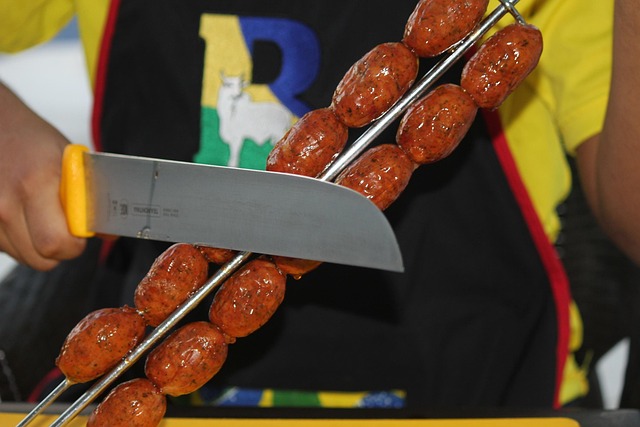Understanding Food Truck Leases
Commercial food truck leases are structured to accommodate short- or long-term needs and are used by people testing new food ideas, catering weekend events, or working seasonally. Businesses often look for models with fryers, griddles, and sinks, and may include an option to purchase later.

What are common food truck lease terms and their meanings?
When entering into a food truck lease agreement, you’ll encounter various terms that may seem confusing at first. Here are some of the most common lease terms and their meanings:
-
Lease Term: This refers to the duration of the lease agreement, typically ranging from a few months to several years.
-
Base Rent: The fixed monthly amount you’ll pay for the use of the food truck.
-
Additional Rent: Extra charges beyond the base rent, which may include maintenance fees, insurance, or property taxes.
-
Security Deposit: An upfront payment held by the lessor to cover potential damages or unpaid rent.
-
Option to Purchase: A clause that allows you to buy the food truck at the end of the lease term.
-
Subletting: The ability to lease the food truck to another party, which may or may not be allowed in your agreement.
Understanding these terms will help you navigate lease negotiations and ensure you’re fully aware of your obligations as a lessee.
How does leasing a food truck differ from buying one?
Leasing and buying a food truck each have their own set of advantages and considerations. Here’s how they differ:
-
Initial Investment: Leasing typically requires a lower upfront cost compared to purchasing a food truck outright.
-
Flexibility: Leasing offers more flexibility, allowing you to upgrade to a newer model or end the agreement more easily than if you owned the truck.
-
Maintenance Responsibility: In many lease agreements, the lessor handles major maintenance and repairs, while owners are responsible for all upkeep.
-
Tax Implications: Lease payments may be tax-deductible as a business expense, while truck owners can claim depreciation on their taxes.
-
Long-term Costs: Over time, leasing may cost more than buying, especially if you plan to operate the food truck for many years.
-
Customization: Owners have more freedom to customize their trucks, while lessees may face restrictions on modifications.
What factors affect monthly food truck lease costs?
Several factors can influence the monthly cost of leasing a food truck:
-
Truck Size and Features: Larger trucks or those with more advanced equipment generally command higher lease rates.
-
Lease Duration: Longer lease terms may result in lower monthly payments compared to short-term agreements.
-
Truck Age and Condition: Newer, well-maintained trucks typically cost more to lease than older models.
-
Included Services: Some leases may include maintenance, insurance, or other services, affecting the overall cost.
-
Market Demand: In areas with high demand for food trucks, lease rates may be higher.
-
Seasonal Considerations: Rates may fluctuate based on peak seasons for food truck operations in your area.
What are the typical costs associated with food truck leases?
Understanding the costs involved in leasing a food truck is essential for budgeting and financial planning. Here’s a breakdown of typical expenses:
-
Monthly Lease Payment: This can range from $1,000 to $3,500, depending on the factors mentioned earlier.
-
Insurance: Expect to pay $100 to $300 per month for comprehensive coverage.
-
Maintenance and Repairs: Budget $200 to $500 monthly for regular upkeep and unexpected issues.
-
Fuel and Utilities: Allocate $300 to $500 per month for fuel and propane.
-
Permit and License Fees: These can vary widely by location but may cost $500 to $1,000 annually.
Here’s a comparison of food truck lease options from real providers:
| Provider | Lease Term | Monthly Cost | Included Features |
|---|---|---|---|
| Roaming Hunger | 12-24 months | $2,000 - $3,500 | Fully equipped truck, maintenance |
| On The Move Trucks | 36-60 months | $1,500 - $2,500 | Custom build, financing options |
| Prestige Food Trucks | 24-48 months | $1,800 - $3,000 | New or used trucks, training |
Prices, rates, or cost estimates mentioned in this article are based on the latest available information but may change over time. Independent research is advised before making financial decisions.
How can you determine if a food truck lease is right for your business?
To decide if leasing a food truck is the best option for your business, consider the following:
-
Financial Situation: Assess your available capital and cash flow projections.
-
Business Goals: Determine if the flexibility of leasing aligns with your long-term plans.
-
Market Testing: Leasing can be ideal for testing new concepts or locations without a long-term commitment.
-
Operational Needs: Evaluate if the lease terms and truck specifications meet your specific requirements.
-
Growth Potential: Consider how easily you can scale your business with a leased truck versus an owned one.
By carefully weighing these factors, you can make an informed decision about whether leasing a food truck is the right choice for your culinary venture.
In conclusion, understanding food truck leases is essential for anyone looking to enter the mobile food industry. By familiarizing yourself with common lease terms, comparing leasing to buying, and considering the factors that affect costs, you’ll be better equipped to make informed decisions about your food truck business. Whether you choose to lease or buy, careful planning and research will set you on the path to success in this exciting and dynamic industry.




